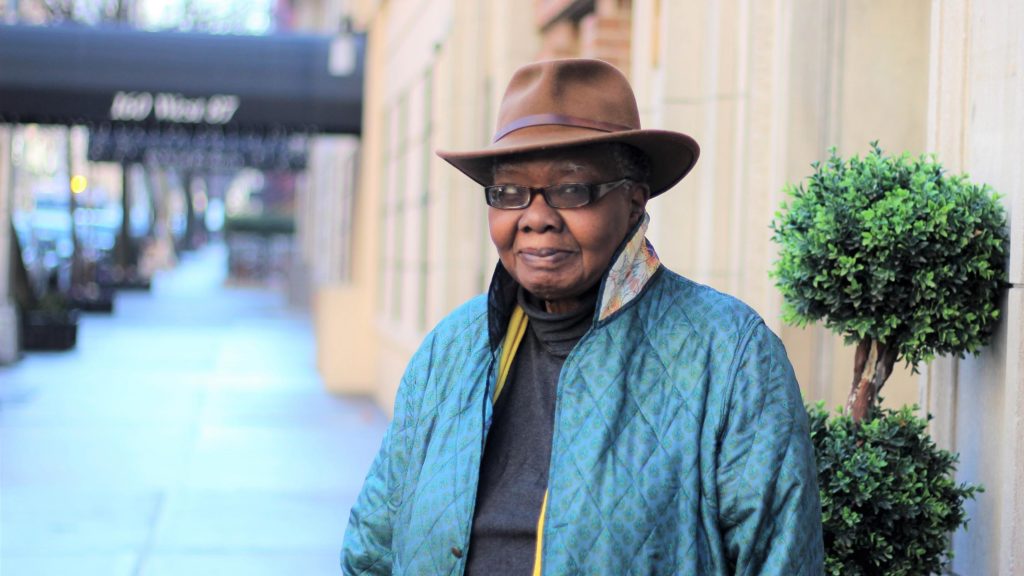
For Lujira Cooper—author, retiree, and graduate student—Capitol Hall is both a refuge and a launchpad.
Cooper moved to our 87th Street supportive housing residence in 2015, after spending nearly a year homeless. Now, instead of spending her days trying to keep a roof over her head, she can pursue her dreams.
“I’m hardly ever here,” she explains; “I’m at SAGE or somewhere else, volunteering.”
Cooper regularly runs the Cyber Center at SAGE, an organization that advocates for LGBTQ older adults. She also leads a writing “playshop” there – “I don’t believe in workshops,” she explains with a wry grin. She sits on SAGE’s Advisory Council and has sat on the Board of Trustees for the Brooklyn Society for Ethical Culture.
When she’s not volunteering, Cooper is writing. She just completed a masters degree in English and creative writing via an online program from Southern New Hampshire University. She has a self-published novel under her belt called Theft of Trust and is working on two others in the Theft series along with a paranormal futuristic story called Kharizma: Planet of Peace.
“My Earth novels have a lot to do with romance, love and integrity,” she says. “In the futuristic novels someone comes back for revenge.”
What’s her biggest inspiration? “My all time favorite is The Count of Monte Cristo and that’s the all time revenge novel, no matter what anybody tells you!”
Cooper is a Rockaway Beach native who spent her life working for government and nonprofits, including the YMCA, the Parks Department and Covenant House. Her troubles started when she moved to Florida. She was sharing space with a roommate, and the arrangement ended in a blaze of interpersonal drama. Cooper slipped out and returned to her native city.
She had given up her apartment, so she moved in with a friend. That, too, didn’t work out due to personal issues. “Sometimes you learn things about people,” says Cooper darkly.
“I was never where I was supposed to be,” she adds. “I did that roommate stuff for too long.”
When Cooper became homeless in 2014, rents in the city were skyrocketing. In July of that year, the average for a one-bedroom apartment hit $2,688—seventy percent higher than just three years before. Cooper didn’t have that kind of money, never mind an extra month’s rent and security deposit. She wound up in shelters—going to the Main Chance drop-in center on 33rd Street and Valley Lodge transitional residence for older adults on the Upper West Side.
Finally a social worker helped her get a room at Capitol Hall. Like all supportive housing tenants, Cooper pays one-third of her income in rent for her modest room. The residence offers intensive support for people recovering from the trauma of homelessness: there’s a laundry group, healthy eating workshops, and social events. Cooper checks in with her case manager once a month, but otherwise doesn’t lean on the support system much.
The positive atmosphere and the privacy of her own room suit her style, though.
“I love it. The people are nice,” she says. “I’m a night person, so I might be working half the night. Sometimes it’s so quiet you can hear the silence.”